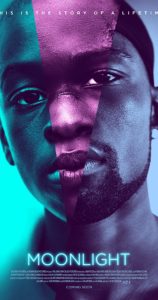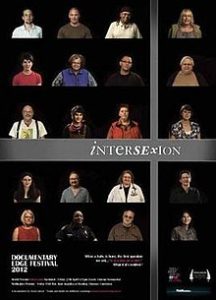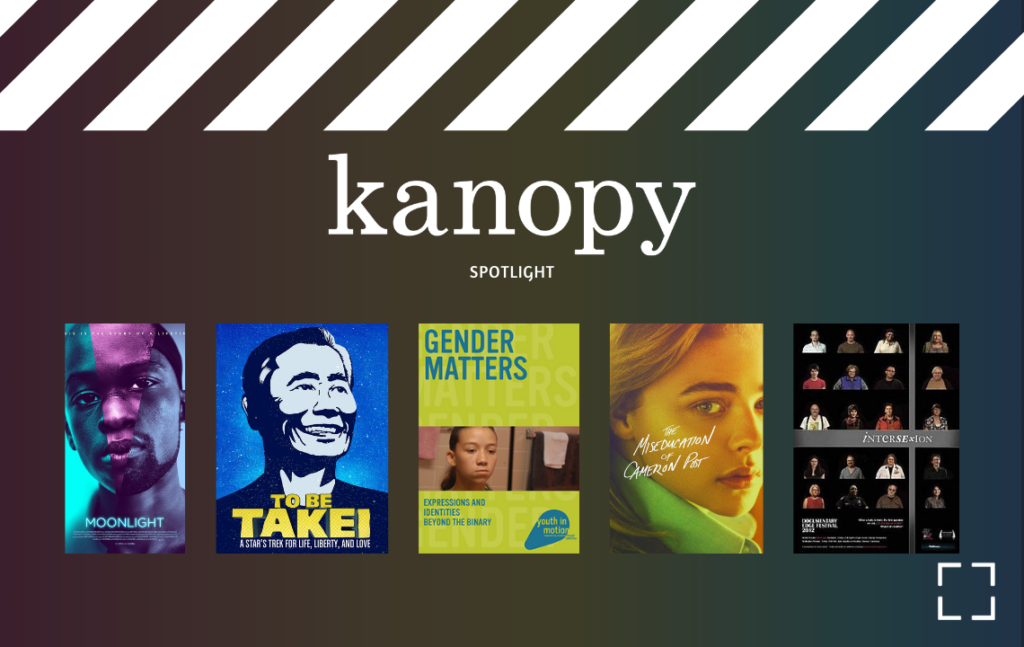In honor of Pride Month, check out these films with LGBTQIA+ characters and stories
**Please note some films mentioned in this post are not appropriate for all ages.**
EVPL is proud to have Kanopy – a free, digital streaming service for libraries. Watch great movies with the click of a button but without the monthly fee of most streaming services. The app – available to download on evpl.org – works on phones, desktops, Roku, Amazon Firestick, and Chromecast. As an EVPL user, you will have access to 20 films per month. This feature looks at some of what Kanopy has to offer, highlighting a particular filmmaker, actor, studio, genre, or theme.
This time, the spotlight is in celebration of Pride Month, championing films with LGBTQIA+ characters and stories. The films included in this list consist of both narrative films and documentaries, some feature length and some short form, featuring characters, filmmakers, or subjects that are gay, lesbian, bi, trans, and intersex. Some are explicitly about their orientation and the struggles and victories they have faced in their lives, while others cover much broader subjects but have a protagonist or lead subject that is LGBTQIA+. These movies, all available on Kanopy, present a variety of diverse experiences and the different ways it can affect one’s life.
 Moonlight (2016)
Moonlight (2016)
Director: Barry Jenkins
Features: Alex Hibbert, Janelle Monáe, Mahershala Ali, Trevante Rhodes
Runtime: 111 mins.
Rating: R
Moonlight focuses on one man at three critical points in his life, known under three names and played by three different actors. As a kid, “Little” finds himself living between two worlds: the horrible household provided by his drug addicted mother (Naomie Harris) and the fantasy home life provided by Juan (Mahershala Ali), a drug dealer who takes Little under his protection and gives him a place away from his mom and the other boys who chase him. As a teenager, Chiron is bullied every day at school, only finding peace through his best friend Kevin, who Chiron gradually realizes he is in love with. As an adult, “Black” (Trevante Rhodes) has his world shaken when Kevin (André Holland) calls him out of the blue, wanting to catch up after so many years and so many things have happened…
Based on a play In the Moonlight Black Boys Look Blue written by Tarell Alvin McCraney, director Barry Jenkins and McCraney adapted it into a screenplay that closely examines many subjects, from being gay in a black community to drug addiction to the failure of schools on the issue of bullying, while always feeling like a character piece focused on Chiron. Partially based on the lives of both McCraney and Jenkins, our empathy for Chiron grows even as we understand why his experiences drift him further and further away from other people. It is heartbreaking to see the innocent boy become a hardened man, but not without some hope left. A personal but powerful film, it won Best Picture at the 2017 Academy Awards, the first film with an all-black cast and the first film dealing with LGBTQ+ issues to do so, as well as Best Supporting Actor for Mahershala Ali as Juan, Chiron’s childhood protector and mentor.
 To Be Takei (2015)
To Be Takei (2015)
Director: Jennifer M. Kroot
Features: BD Wong, Brad Takei, George Takei, Howard Stern, William Shatner
Runtime: 95 mins.
Rating: Not Rated
Actor George Takei is most well-known for his role as Lt. (later Captain) Hikaru Sulu on the television series and film franchise, Star Trek, but there is so much more he has done. This documentary, To Be Takei looks at the fullness in his life and everything he has fought for. When George was a little kid, he and his family were held at an internment camp for Japanese-Americans during World War II. This traumatic experience had a lasting influence on George, as well as his relationship with his parents, to such an extent that he campaigned in the 1980s and successfully testified before Congress to get Japanese-Americans interned reparations. At the time the documentary was being made, he had turned this experience into a Broadway musical named Allegiance starring George himself.
The documentary also shows George’s life as a gay man, from his struggles being a closeted actor in Hollywood to his relationship with his husband and manager, Brad, the analytic cynic to George’s bright optimist. George came out of the closet in the early 2000s when California’s governor, Arnold Schwarzenegger vetoed a bill for gay marriage, and like he did for Japanese-Americans, he campaigned and fought for the right to marry who you choose. From this, he was able to build a second career from being out, including becoming the announcer for The Howard Stern Show and a multitude of cameos. From life on the convention circuit to his long-standing feud with former co-star, William Shatner, To Be Takei looks at everything in George Takei’s life, from his career to his personal life.
 Two-Spirit People (1991)
Two-Spirit People (1991)
Director: Gretchen Vogel, Lori Levy, Michel Beauchemin
Runtime: 23 mins.
Rating: Not Rated
Two-Spirit People is part of a collection of short films complied by Frontline, some fiction and some nonfiction, named “Gender Matters – Transgender Youth.” This short is from 1991 and covers the very complex topic of “two-spirit” individuals within Native American communities. In some nations, a child going through puberty is given the opportunity to take one of two items: a basket, representing femininity, and a bow, representing masculinity. If the child chooses the opposite item to what their external sex is, then they are now considered as having a third-gender, or in the more recent umbrella term, “two-spirit.”
Although not exactly the same as the Western concepts of gay or transgender, it has historically been linked to both. How these individuals are treated by the greater community depends on the said community. For many years, it was an accepted part of most nations and normal for two-spirit members to be romantic with cisgender men and women (although in some, there were taboos about two third-gender individuals becoming involved). In the early ‘90s, that had changed where more rural, isolated communities were still accepting of two-spirit people, but more integrated communities had come to accept the conventional Western view of intolerance and shunned some of the individuals. This short film shows the complexity of gender and sexuality that has always existed and throughout all cultures.
 The Miseducation of Cameron Post (2018)
The Miseducation of Cameron Post (2018)
Director: Desiree Akhavan
Features: Chloe Grace Moretz, Quinn Shephard, Sasha Lane, Steven Hauck
Runtime: 92 mins.
Rating: Not Rated (Contains Drug Use and Sexual Content)
A period piece set in 1993, The Miseducation of Cameron Post follows Cameron (Chloë Grace Moretz), a young adult whose normal life is yanked out from under her when her boyfriend discovers Cameron kissing her best friend. Cameron’s aunt and guardian sends her to a religious “reeducation” camp, where the owners try to “pray the gay away” from the teenagers sent there. On one side are the students like Erin and Helen, who genuinely want to change themselves, or at least want to want to. On the other side are Jane and Adam, proud of who they are and contemptuous of the place they’re sent to. Cameron finds herself torn between these two sides, more naturally drawn to Adam and Jane’s rebellious ways, but also wanting to become like Helen or Erin and find a place where she feels like she belongs, even if it’s here. However, when the actions of the camp and the people who run it become so egregious that Cameron cannot ignore it anymore, she has to make her choice…
Based on the book of the same name by Emily M. Danforth, the story was inspired by a 2005 incident where teenager Zach Stark was sent to a gay reeducation camp, bringing forth daily protests and cries for Zach to be released. Director Desiree Akhavan, herself bisexual, narrows the novel’s wider focus into a very self-contained story about the reeducation facility itself and the events that happen there. Our sympathies are with Cameron and the rebellious kids, but the other kids and even those who run the facility itself are not made to be two-dimensional villains. We understand the struggle that Erin, Helen, and even “Reverend Rick” himself face within themselves between their natural wants and desires and what they have been told God wants for them. But while we may empathize with them on an individual level, the film is also very clear on the harm and trauma these facilities cause.
 Intersexion (2013)
Intersexion (2013)
Director: Desiree Akhavan
Features: Grant Lahood, John Keir
Runtime: 54 mins.
Rating: Not Rated (Contains Nudity)
Presented, narrated, and researched by intersex activist Mani Mitchell, Intersexion looks at the lives of a dozen or so intersex individuals and how it has affected their lives. They vary as much as any other group; some identify as male or female, and some are non-binary. They can be gay, straight, bisexual, asexual, or anything on the spectrum of sexuality. Some were assigned one gender at birth and identify as another today, while others were allowed to grow up intersex. What they have in common is a shared strength, learning how to be proud of themselves when society tries to fit them into one box or another.
One thing the documentary focuses on is the impact and harm behind how the medical community, spearheaded by a doctor in the ‘60s and ‘70s, has traditionally treated intersex individuals: choose a gender for the child, use surgery to achieve it, and then raise the child as the gender chosen. These decisions can have a lasting impact on the children, both psychological and physical, and the trauma from those who underwent nonconsensual surgery is contrasted with the intersex individuals who had not. Nevertheless, through support groups like the one Mitchell founded, the people in the intersex community have been able to find others going through the same things. This documentary does a fantastic job of highlighting a community that is often overlooked, out of sight, and out of mind.
—
Kanopy has these films and many more featured in a section on their website: Films to watch during Pride Month
—
More Kanopy Spotlights
- Kanopy Spotlight: Taika Waititi
- Kanopy Spotlight: Dario Argento
- Kanopy Spotlight: George A. Romero
- Kanopy Spotlight: A24
- Kanopy Spotlight: Black Cinema
- Kanopy Spotlight: Female Filmmakers
- Kanopy Spotlight: Asian Cinema
- Kanopy Spotlight: Horror Comedy

Eric J.
With 8 locations throughout Vanderburgh County, EVPL is ready to discover, explore, and connect WITH you! We encourage you to uncover new things, revisit old favorites, and to engage with us along the way.
200 SE Martin Luther King Jr. Blvd
Evansville, Indiana 47713
Administration: ceo@evpl.org
Card & Account: circulation@evpl.org
Feedback & Ideas: marketing@evpl.org




